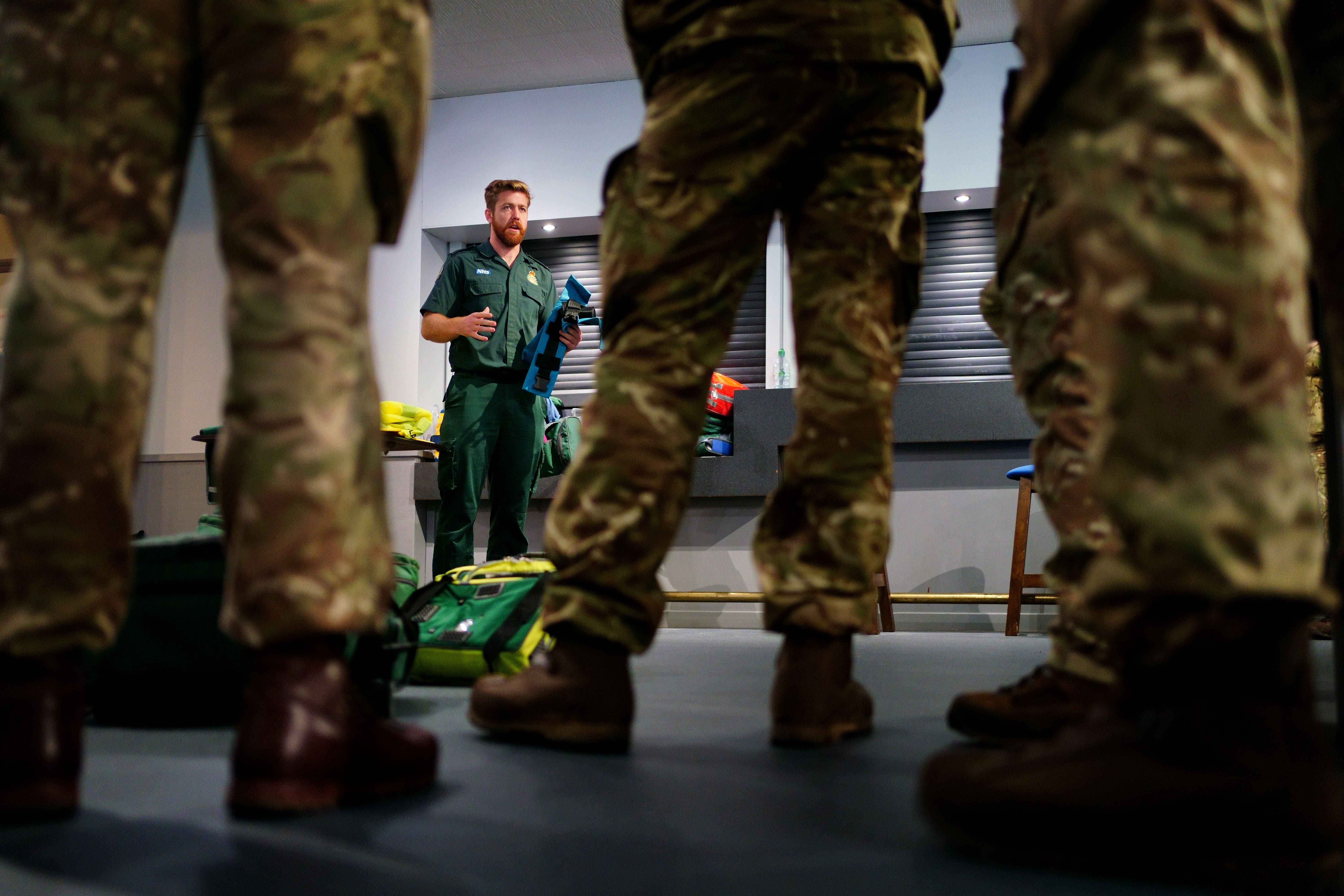Military covering for ambulance workers will be nervous, says senior officer
All personnel being drafted in will have a category C driving licence, meaning they will be familiar with driving vehicles similar to ambulances.

Your support helps us to tell the story
From reproductive rights to climate change to Big Tech, The Independent is on the ground when the story is developing. Whether it's investigating the financials of Elon Musk's pro-Trump PAC or producing our latest documentary, 'The A Word', which shines a light on the American women fighting for reproductive rights, we know how important it is to parse out the facts from the messaging.
At such a critical moment in US history, we need reporters on the ground. Your donation allows us to keep sending journalists to speak to both sides of the story.
The Independent is trusted by Americans across the entire political spectrum. And unlike many other quality news outlets, we choose not to lock Americans out of our reporting and analysis with paywalls. We believe quality journalism should be available to everyone, paid for by those who can afford it.
Your support makes all the difference.A senior officer has said there will be “nerves” among military personnel who are missing Christmas leave to drive ambulances during NHS strikes on Wednesday.
About 600 members of the Army, Navy and RAF from across the country have been drafted in to help during the walkouts, some of whom have never driven the vehicles before.
Lieutenant Colonel James Shaw, Brigade Major of the Household Division, said the experience would be new to some personnel but troops were “confident” and had “a huge amount of initiative”.
The officer, who is overseeing training for the task at Wellington Barracks in London, said: “I think there’ll be a few nerves going out tomorrow – it’s a really important task and I think we’re incredibly proud.
“And obviously being military, you just want to do the best you can possibly do on this sort of thing, so I’m sure there will be a few nerves.”
Members of the armed forces taking part in the two days of training at the barracks said they were “nervous” but “honoured” to cover for ambulance workers, despite having to sacrifice time off.
Asked how he felt about being drafted in during the holiday, Lance Corporal Connor Roberts said: “I’m absolutely fine. I think it’s something that we’re used to, giving up our time to various things, so it’s an honour to come down and help the London Ambulance Service (LAS).”
He added: “I think it’s normal to be a little bit nervous but feeling quite honoured to come down and do my part.”
Sapper Terry Obeng said: “I’m all right, it’s better saving lives (than celebrating Christmas).”
However, the combat engineer said that responding to civilian incidents would “definitely make a difference” from the work with which he is familiar.
He said: “Definitely it’s going to make a difference, but that’s why we are here today, to train, so it won’t be that much of a surprise for us.”
He added: “An injured civilian is not an injured soldier. An injured soldier knows he is going to get injured. A civilian doesn’t know.”
Both men were among members of the armed forces who had not been behind the wheel of an ambulance until their training on Tuesday.
Instead they have a category C licence, meaning they are familiar with driving vehicles similar to ambulances and will have received extensive annual medical training.
Personnel covering for striking ambulance workers on Wednesday will not be allowed to break red lights or turn on blue lights when driving.
They are not due to be sent on critical emergency callouts or carry out clinical tasks but ambulance trainers have told them they should be prepared to hand equipment to their clinical partner if asked.